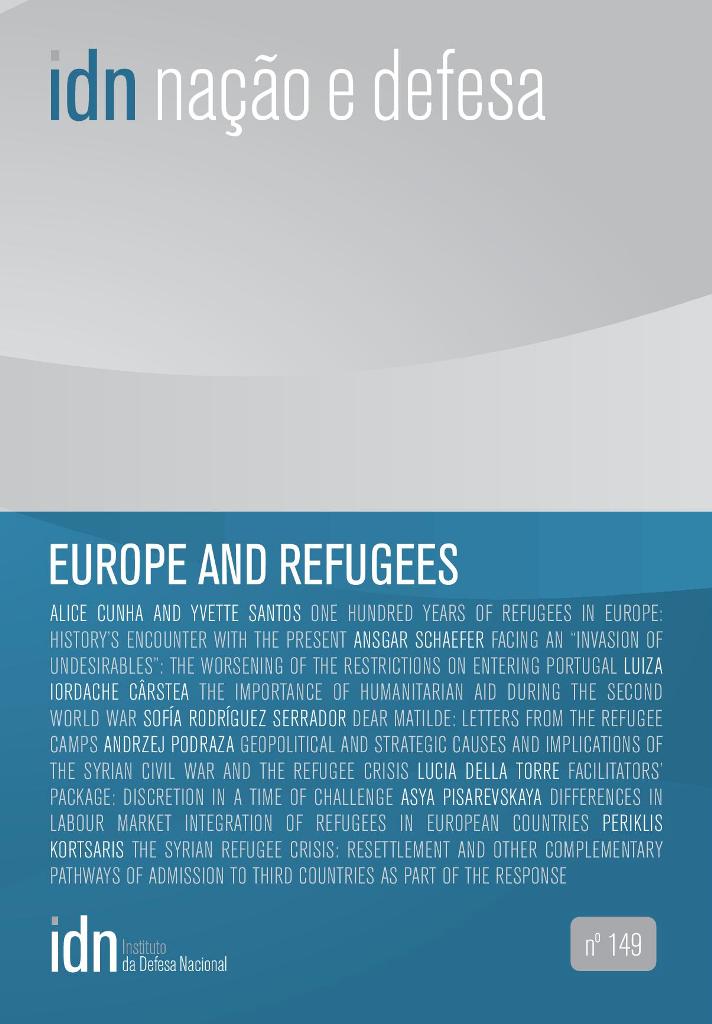The Importance of Humanitarian Aid During the Second World War
The Case of the Joint Relief Commission of the International Red Cross in France (1940-1945)
Resumo
This article analyse Joint Relief Commission’s (JRC) humanitarian policies and practices of the International Red Cross, an instrument of the International Committee of the Red Cross (ICRC) and the League of Red Cross Societies to help civilian populations, particularly children and women, in different European countries during the Second World War. Through the case study of JRC’s humanitarian aid in France between 1940-1945 and based on specific bibliography, documentary resources, archives and audio-visual collections of ICRC’s library, the text reflects on the difficulties, importance and necessity of humanitarian policies and instruments favouring the most vulnerable groups during armed conflicts.

Downloads
Publicado
2024-09-30
Edição
Secção
Artigos




